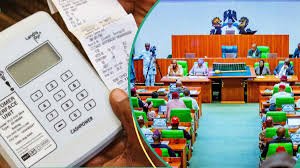The House of Representatives has issued a directive to the Nigerian Electricity Regulatory Commission (NERC) and Electricity Distribution Companies (DISCOs) to revert to the previous electricity tariff. This decision comes in response to the recent price increase for Band A category customers.
Victor Nwokolo, Chairman of the ad hoc committee investigating the tariff hike, presented a report to the House containing three key recommendations, all of which were adopted by the Committee of the Whole.
The controversy began in April when the Nigerian government announced a significant increase in electricity tariffs for Band A customers, who represent 17% of consumers but account for 40% of electricity consumption. Under the new policy, DISCOs were permitted to raise rates from ₦68 to ₦225 ($0.15) per kilowatt-hour, provided they guaranteed 20 hours of daily electricity supply.
Minister of Power Bayo Adelabu defended the decision in February, citing financial challenges in the sector.
He stated, “Now, if you add the ₦2 trillion legacy debt owed to gas companies and the ₦1.3 trillion owed to GenCos, we have an inherited debt of over ₦3 trillion in this sector. How will the sector move forward? Nigerians deserve the right to know this.”
Despite opposition from customers and labor groups, including the Nigerian Labour Congress (NLC), the government proceeded with the implementation and even expanded the Band A category to include more customers.
The House of Representatives initially urged NERC to suspend the tariff hike on April 30, pending investigation results. However, the government continued with the implementation.
In presenting the committee’s recommendations, Nwokolo outlined three key points:
1. NERC should revert to the previous tariff and comply with Section 116 (2b and 3b) of the Electricity Act within 60 days.
2. The joint committee should hire independent experts to conduct a forensic investigation into the actual cost of electricity tariffs.
3. All DISCOs should return to the old tariff until the House resolves the matter.
Nwokolo emphasized, “The conclusion of the House is that the implementation of the increment should be done in phases over some time, not as they have just done.”
The Committee of the Whole unanimously adopted these recommendations, signaling a potential reversal of the controversial tariff hike.
























